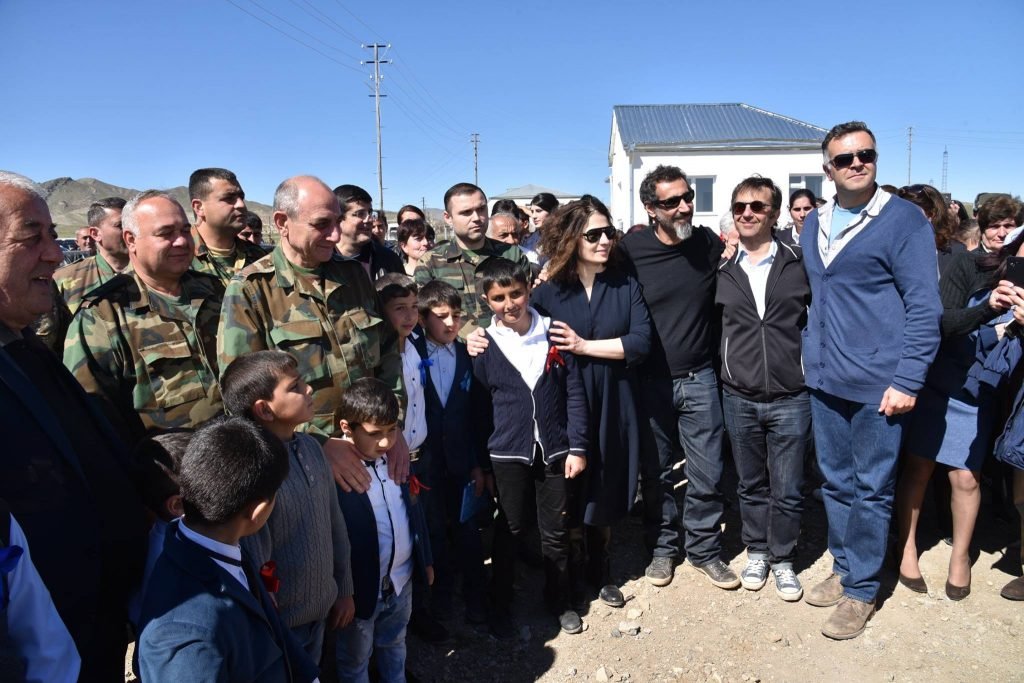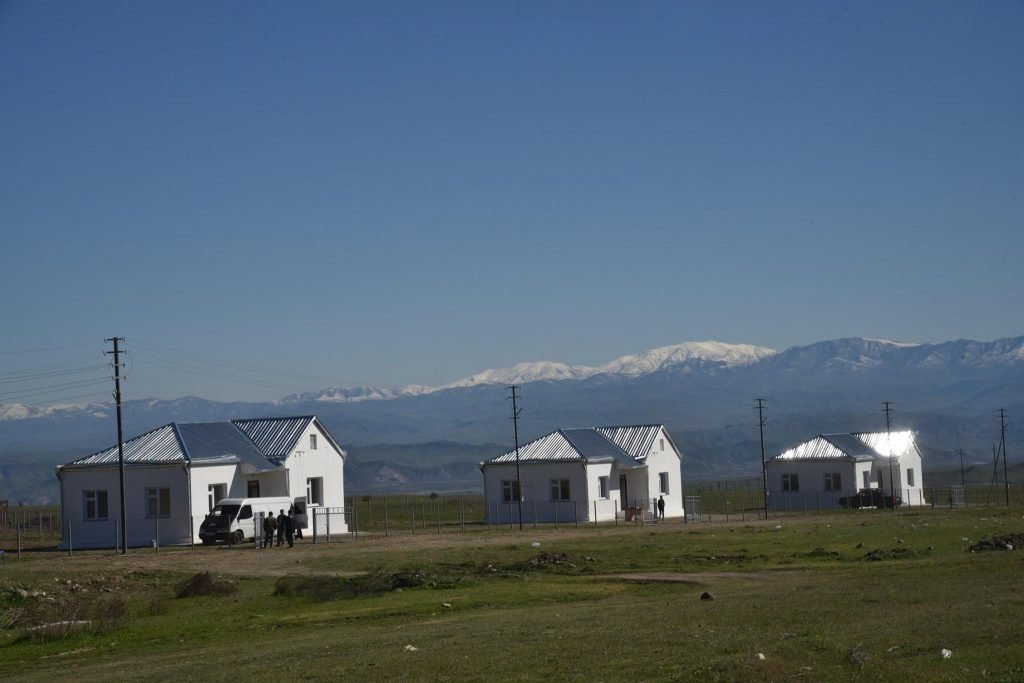“It takes a village to raise a child.” So goes the age-old African proverb.
In Artsakh—especially near the Line of Contact (LoC) with enemy Azerbaijan—a village’s purpose goes even further.
There, a village—especially a border village— is directly connected to the security and livelihood of the Armenian population in this unrecognized republic.
The resettlement of such areas is not simply a good idea; it is highly strategic.

The village of Arajamugh, located in southern Artsakh, lies approximately 25 miles beneath Hadrut, in territories liberated by Artsakh Defense Forces in late 1993. It is pretty much the southernmost point of civilian inhabitance in Artsakh.
It was not mere coincidence then, that in 2004, the Tufenkian Foundation initiated this village, working in conjunction with the Artsakh Republic’s Department of Refugees and Resettlement.
Eight years later, in 2012, the Armenian Cultural Association of America (ACAA) Artsakh Fund decided to assume responsibility for expanding the village.
The expansion’s first phase concluded last month, as two Diasporan Armenian organizations, both based in the United States, came together to develop infrastructure, create opportunities, and work directly with villagers and future resettlers of this small but growing village (inhabitants already number more than 100).
The worldwide Armenian community’s tradition of tendering vital assistance to Artsakh is not new. As early as 1988—at the breakout of the Nagorno-Karabagh War—Armenians in the Diaspora, including groups and individuals across the U.S., provided much-needed financial, medical, logistical, and organizational assistance to the people of Artsakh.
And the assistance did not stop with the signing of the 1994 ceasefire. On the contrary, it is ongoing.
Today, however, the focus is steadily shifting from charity to long-term development—from emergency relief to building for the future.
The reason is simple. Developing such villages serves as the best guarantee to retain and preserve the small piece of historic Armenian land that so many Armenians— young and old— gave up their lives to reclaim.
Because if border villages like Arajamugh aren’t built, if they aren’t resettled strategically, and if they aren’t developed economically, it becomes all the more likely that they are placed on the negotiation table as areas of possible concession. Passivity, in this context, simply fuels Azerbaijan’s false claims to ‘occupied territories.’
And by building new homes in the most vulnerable parts of Artsakh and increasing the population there, the Armenian nation sends a message to its nearby adversary; that the citizens of a free Artsakh are “here to stay.”
Earlier this month, scores of Arajamugh villagers were joined by Artsakh authorities and guests for the opening ceremonies of the Arajamugh Village Expansion. During the ceremonies, the keys of six newly constructed homes were handed to six families, who have recently resettled in the village. These families included native Artsakhtsis as well as former refugees from Azerbaijan who have found their home here.

During his address to the crowd on behalf of the Artsakh Fund, Project Manager Raffi Killian of Chicago proclaimed that “Artsakh is the backbone of our national identity.”
And as the backbone of our national identity, Artsakh—its security, well-being, and eventual reunification with Armenia—is critical to the survival of the Armenian nation.
Arajamugh is just one village and one example of a success story in the making. Hopefully there will be many more.
It takes (building) a village to build a country.
The future of Artsakh and the fate of our country depends on it… one village at time.


Be the first to comment